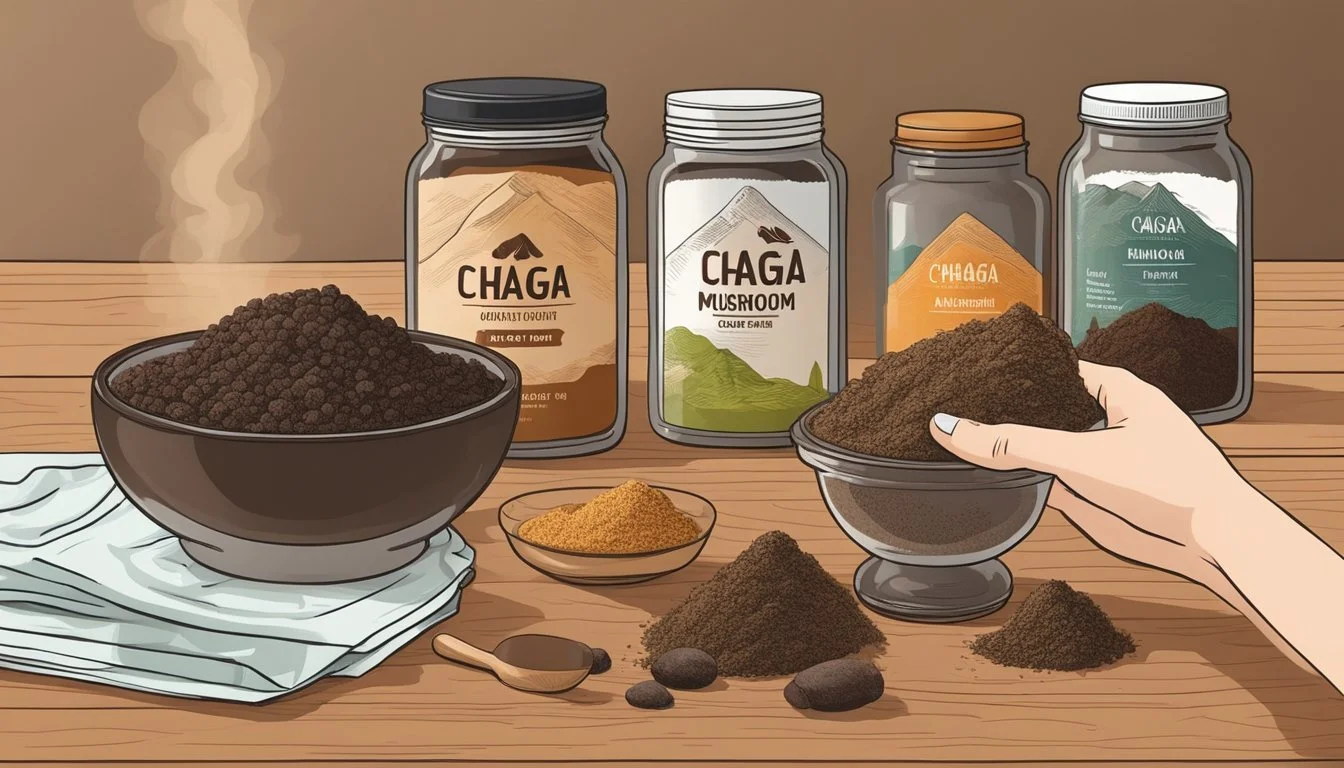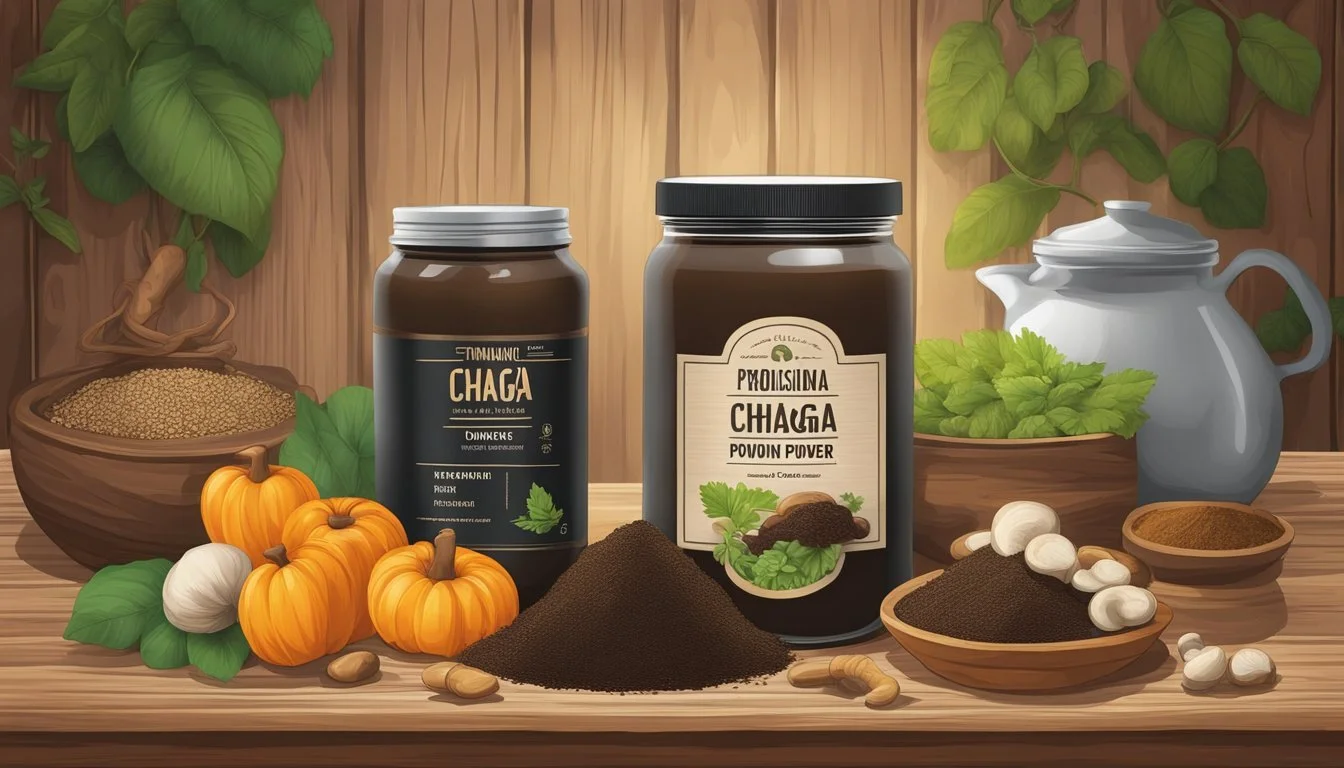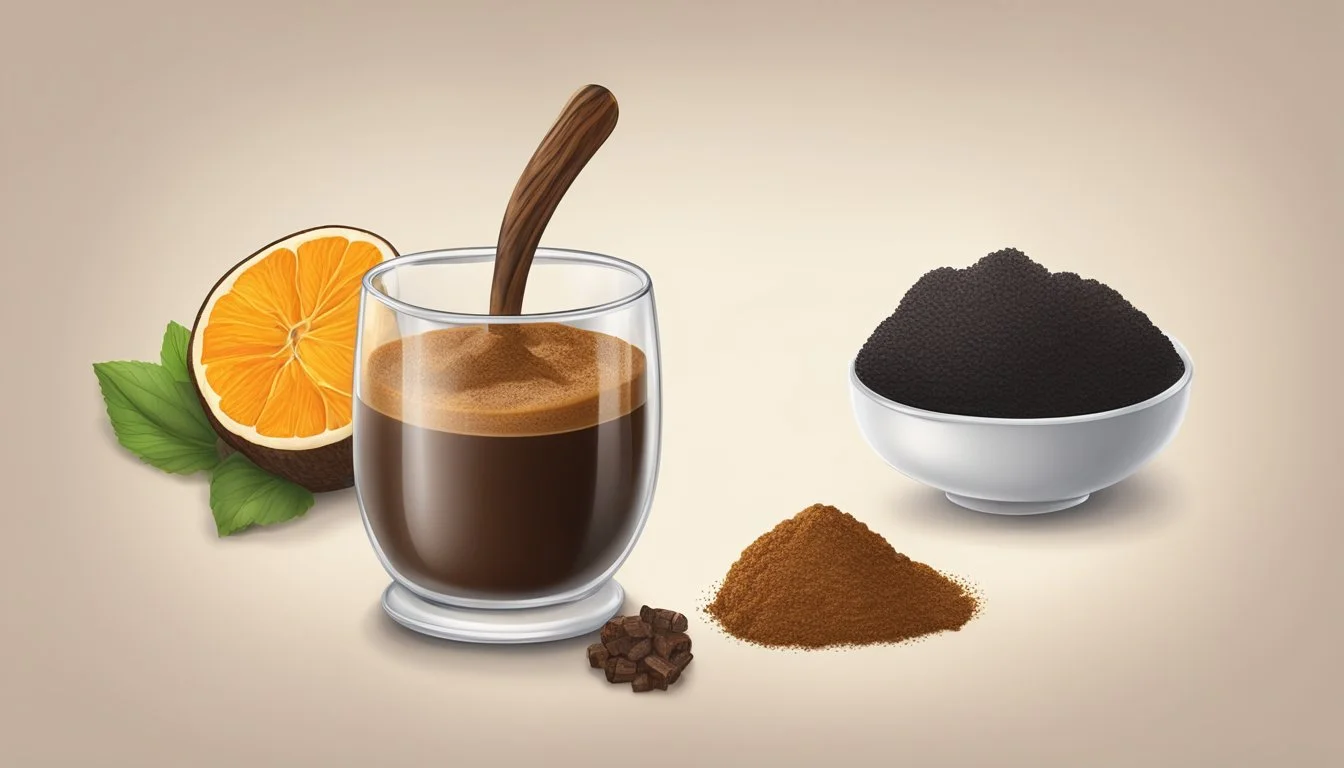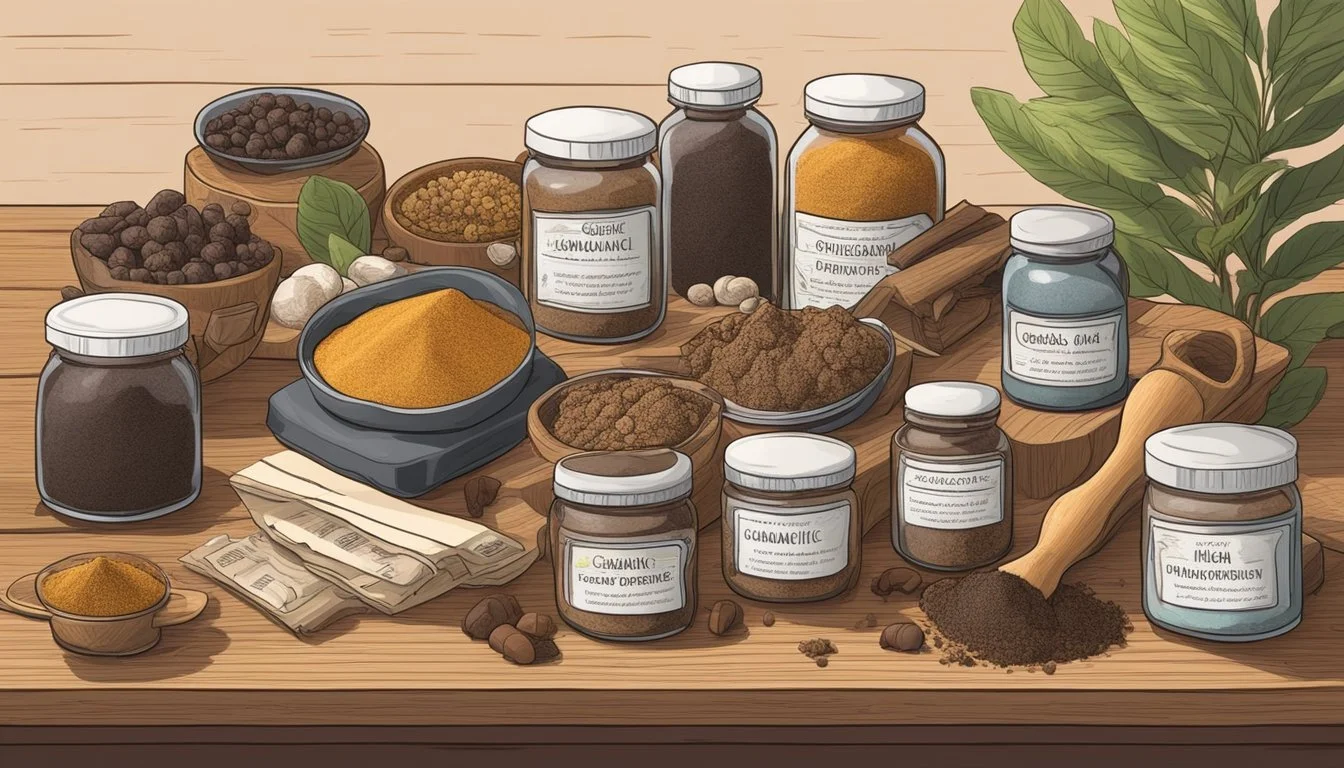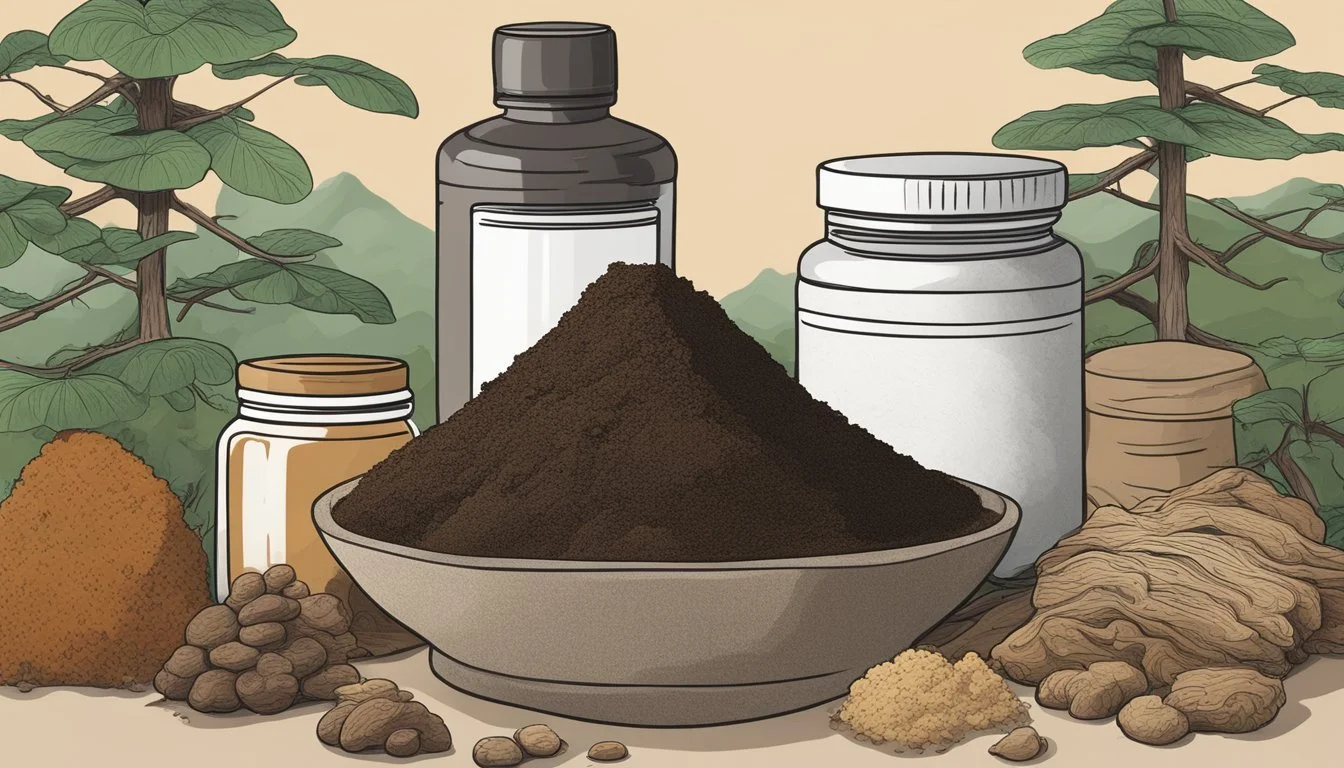Chaga Mushroom Powder Substitutes
Top Alternatives to Enhance Your Health
For those seeking alternatives to chaga mushroom powder, various substitutes can offer comparable health benefits. Chaga mushroom powder is known for its rich antioxidant content and potential immune-boosting properties, but there are viable options for those who want to diversify their intake or are unable to find chaga.
Shiitake mushroom powder is a popular choice due to its protein and vitamin content, along with potential anti-cancer and anti-inflammatory properties. Another excellent substitute is reishi mushroom powder, which has been used traditionally to support immune health and reduce stress.
Lion's mane mushroom powder is also noted for its cognitive benefits, making it a potential alternative for those who seek neurological support. Each of these substitutes has unique advantages, and incorporating them can provide a well-rounded approach to mushroom-based nutrition.
Understanding Chaga Mushroom
Chaga, scientifically known as Inonotus obliquus, is a fungus that commonly grows on the bark of birch trees.
It forms a dense black mass known as the sclerotium, which has a cracked and rough exterior.
Native to cold climates, Chaga thrives in the northern hemisphere, particularly in regions like Russia, Siberia, Canada, and Alaska.
In traditional medicine, Chaga has been used for centuries as a remedy for various ailments.
Cultures in Russia and Siberia have valued it for its potential health benefits.
These include boosting immunity, reducing inflammation, and protecting cells from damage.
The size of a Chaga sclerotium can range from 10 to 15 inches, making it a significant presence on the birch trees it inhabits.
Chaga is typically harvested in its natural environment.
Once collected, it is often dried and ground into a powder, making it easier to use in teas, smoothies, or other preparations to incorporate its potential benefits into daily routines.
This unique mushroom has earned the nickname "king of mushrooms" due to its notable properties.
Adding Chaga powder to foods or drinks provides a convenient way to enjoy these potential health benefits.
Nutritional Profile of Chaga
Chaga mushroom, a potent medicinal fungus, offers a rich nutritional profile. High in antioxidants, Chaga helps combat oxidative stress and supports overall health.
Minerals in Chaga include potassium, copper, iron, zinc, and manganese. These essential minerals aid various bodily functions such as metabolism, red blood cell production, and immune support.
Vitamins in Chaga are also significant. It contains Vitamin D, necessary for bone health, and a range of B-complex vitamins, which are crucial for energy production and maintaining healthy skin.
Polysaccharides and beta-glucans in Chaga mushrooms enhance immune system efficiency and promote gut health. These compounds have shown potential in modulating the immune response and acting as prebiotics.
Chaga also provides dietary fiber, contributing to digestive health and regular bowel movements.
In addition to its vitamins, minerals, and essential compounds, the protein content in Chaga supports tissue repair and muscle growth. These nutrients collectively make Chaga an excellent addition to a balanced diet.
Health Benefits of Chaga Mushroom Powder
Chaga mushroom powder offers several key health benefits, including supporting the immune system, providing antioxidant properties, potentially fighting cancer, and aiding in blood sugar control.
Supports Immune System
Chaga mushrooms are known for their ability to enhance the immune system. They help stimulate the production of white blood cells, which are crucial for fighting off infections and harmful pathogens.
Traditionally, people in Northern Europe and Russia have used chaga in herbal teas to boost immunity. The polysaccharides present in chaga contribute significantly to this immune-boosting effect. Additionally, chaga can reduce inflammation, which is often linked with various immune system dysfunctions and chronic diseases.
Antioxidant Properties
Chaga mushrooms are rich in antioxidants. These antioxidants help prevent oxidative stress and damage caused by free radicals. This property is significant because oxidative stress can lead to various chronic diseases, including heart disease and diabetes.
The high ORAC (Oxygen Radical Absorbance Capacity) score of chaga indicates its potential in combating oxidative stress. It contains compounds like phenols, flavonoids, and superoxide dismutase (SOD), which help neutralize harmful free radicals.
Potential Cancer Fighter
Chaga mushroom powder shows promise as a potential cancer-fighting agent. Studies suggest that it contains compounds that may inhibit the growth of various cancer cells.
The betulinic acid found in chaga is one such compound. It has been observed to induce apoptosis (programmed cell death) in cancer cells, while leaving healthy cells unharmed. Though more research is needed, these preliminary findings are encouraging for those seeking natural cancer-fighting options.
Blood Sugar Control
Chaga mushrooms may also play a role in blood sugar management. This is particularly beneficial for individuals with diabetes or those at risk of developing it.
The polysaccharides in chaga have been shown to lower blood sugar levels and improve insulin sensitivity. Regular consumption of chaga mushroom powder could help maintain stable blood sugar levels and reduce the risk of complications associated with diabetes. This benefit extends to cholesterol regulation, as chaga has been noted to help lower LDL (bad cholesterol) levels.
Common Uses of Chaga Mushroom Powder
Chaga mushroom powder serves various purposes across different applications, from making beverages to incorporating into meals and supplements. This section highlights some of the most common uses.
Chaga Tea Preparation
Chaga tea is a popular way to consume this medicinal mushroom. To prepare, heat water to just before boiling. Place 1-2 teaspoons of Chaga powder into a tea ball or directly into the pot. Allow it to steep for at least 5 minutes. The tea can be enjoyed plain or sweetened with honey or maple syrup. For a richer infusion, simmer Chaga chunks or powder in hot water for 20-30 minutes. This process enhances the extraction of beneficial compounds.
Incorporating in Food and Drinks
Chaga powder can be easily blended into various food and drink recipes. Smoothies are a convenient option; simply add a teaspoon to your favorite fruit blend. Coffees and espressos also pair well with Chaga powder, adding an earthy flavor while boosting nutritional value. Soups and stews can benefit from its properties as well. Just sprinkle some Chaga powder into the broth during cooking for an added health kick.
Supplemental Forms
Chaga mushroom powder is available in different supplemental forms, including capsules, extracts, and tinctures. These are convenient for those who prefer not to alter their meals or drinks. Capsules provide a pre-measured dose, while extracts and tinctures offer concentrated forms of Chaga. They can be taken directly or mixed with water or juice. These supplements are valued for their consistency and ease of use, making it simple to incorporate Chaga's potential health benefits into daily routines.
Identifying High-Quality Chaga Products
When selecting a high-quality Chaga mushroom product, several factors need careful consideration.
Source
Look for Chaga sourced from birch trees in cold climates, such as Siberia or northern Canada. Chaga extracted from these regions often contains higher levels of beneficial compounds.
Chaga Extract
Products should ideally be dual-extracted, utilizing both hot water and alcohol extraction methods. This ensures that a full spectrum of nutrients and active ingredients is retained.
Compounds
Check for a high concentration of beta-D-glucans, an essential active compound in Chaga. These compounds are linked to the mushroom's immune-supporting properties.
Melanin
High-quality Chaga is rich in melanin, a natural pigment with powerful antioxidant properties. Melanin contributes to the mushroom's dark color and is crucial for its health benefits.
Nutritional Content
Verify the nutritional content, including vitamins, minerals, and amino acids. A high-quality product will list these clearly on its label.
Antioxidant Properties
Assess the product's antioxidant capacity. Chaga boasts an exceptional ORAC (Oxygen Radical Absorbance Capacity) value, indicating its potential to fight oxidative stress.
Packaging
Opt for products in air-tight, dark glass jars or resealable pouches. This helps maintain freshness and prevents degradation of active compounds.
By focusing on these criteria, one can confidently identify authentic, high-quality Chaga mushroom products.
Substitutes for Chaga Mushroom Powder
When you need a replacement for Chaga mushroom powder, consider both other medicinal mushrooms and non-fungal options. These alternatives can offer similar benefits and add unique flavors and nutrients to your diet.
Other Medicinal Mushrooms
Medicinal mushrooms serve as excellent substitutes. Reishi mushroom powder, known for its immune-boosting and anti-stress properties, can be added to teas or smoothies. It provides a rich, earthy flavor similar to Chaga.
Shiitake mushroom powder works well in savory dishes. Shiitake mushrooms bring antioxidants, vitamin B5, and anti-inflammatory properties, making them a versatile alternative. Their umami flavor enhances soups and sauces.
Turkey Tail mushroom powder is another substitute. Recognized for its potential cancer-fighting properties, this powder can be mixed into herbal teas. Turkey Tail adds mild flavor, making it easy to incorporate into various recipes without overpowering other ingredients.
Non-Fungal Substitutes
When mushrooms aren't an option, other healthy alternatives exist. Garlic powder offers a robust flavor and a similar texture to mushroom powder. While its taste is distinctive, it works well in savory recipes such as soups and stews.
Herbal tea blends containing ingredients like ginger, turmeric, and cinnamon provide a warming, medicinal quality. These can be brewed similarly to Chaga tea, offering a healthful, caffeine-free beverage.
For a coffee substitute, dandelion root powder can be used. It has a slightly bitter taste and can be brewed like coffee. This substitute provides antioxidants and supports liver health.
Using non-fungal options like garlic powder, herbal teas, and dandelion root powder allows for variety in flavor and health benefits while maintaining nutritional value.
Safety and Side Effects
Chaga mushroom powder, like any supplement, may carry certain risks and side effects.
Safety concerns include its potential interaction with medications. Those on blood-thinning or diabetes medications should consult a healthcare provider before use.
Side effects can vary. Some individuals might experience digestive discomfort.
Pregnant and breastfeeding individuals should avoid chaga due to a lack of sufficient research on its safety during these periods.
People with autoimmune diseases should exercise caution. Chaga may boost the immune system, potentially exacerbating autoimmune conditions.
Individuals with liver disease should also be cautious. While chaga is generally considered safe, its effects on the liver have not been extensively studied.
Always consult with a healthcare provider before starting any new supplement regimen.
How to Incorporate Chaga Into Your Daily Routine
To incorporate Chaga mushroom powder into a daily routine, there are several convenient methods.
Chaga Tea: To make Chaga tea, heat water to just before boiling. Place 1-2 teaspoons of Chaga powder into a tea ball or directly in the pot, and steep for at least 5 minutes. This tea can be enjoyed plain or sweetened with honey for added flavor and energy.
Smoothies: Adding Chaga powder to smoothies is an effortless way to boost the immune system. One can blend a teaspoon of Chaga powder with fruits like mixed berries and bananas, along with almond milk, creating a nutrient-rich beverage perfect for mornings.
Soups: Adding Chaga powder to soups is another simple method. A creamy Chaga mushroom soup can integrate the powder seamlessly. Include about 1-2 grams of the powder to enhance the immune-boosting properties of the meal, ideal for those looking to support their heart health and prevent infections.
Coffee: For coffee lovers, mixing Chaga powder into the morning coffee can be a great start to the day. Stirring a teaspoon of Chaga powder into a cup of coffee can provide a subtle earthy flavor and an added dose of antioxidants without altering the coffee's original taste much.
Daily Dosage: Beginners should start with a small dosage, around 500 milligrams of Chaga powder per day. Gradually, this can be increased to 1000 milligrams. Consistent daily consumption can aid in maintaining energy levels and supporting the body's natural defenses.
These simple methods can make including Chaga in the daily diet easy and beneficial without significant time investment.
Emerging Research on Chaga
Emerging research on Inonotus obliquus (Chaga mushroom) presents promising findings in both animal studies and human trials.
Significant studies focus on Chaga's anti-cancer properties. Research suggests it may help reduce the growth of tumors. Experimental results indicate that Chaga extracts can decrease the proliferation of cancer cells, particularly in breast, cervix, and skin cancers.
Another vital area of study is Chaga’s role in combating oxidative stress and neutralizing free radicals. Animal studies have shown that Chaga can enhance antioxidant activity, protecting cells from damage. These properties are critical in preventing numerous chronic conditions and improving overall health.
Chaga's anti-inflammatory effects are another crucial aspect of ongoing research. These studies are essential in understanding Chaga's potential to alleviate symptoms of chronic inflammatory conditions such as rheumatoid arthritis. Evidence indicates that Chaga may inhibit inflammatory responses, offering relief to those suffering from these ailments.
Some human trials are delving into Chaga's potential to modulate the immune system. These studies are examining its effectiveness in enhancing immune responses and potentially providing support for conditions where immune modulation is beneficial.
Research is also exploring Chaga's potential effects on managing diabetes. Early results suggest that it might help in regulating blood sugar levels, making it a potential natural supplement for diabetic patients.
In conclusion, Chaga mushroom is under extensive investigation for its myriad of health benefits, and the results so far are promising.
Environmental and Cultural Significance
Chaga, also known as cinder conk, has a significant cultural and environmental role.
Chaga mushrooms primarily grow on birch trees in Northern Canada and Siberia. They occasionally occur on alder and oak trees too. This fungus contributes to forest ecology by selecting trees weakened by age or stress, aiding in natural forest cycles and regeneration.
Cultural Significance:
Chaga holds a revered place in traditional medicine. In Siberia, it’s known as the "Mushroom of Immortality." Indigenous people have used it for centuries to boost immunity and health. These traditions carry significant cultural value and are woven into local folklore and practices.
Chaga's medicinal uses are deeply ingrained in Russian folk medicine as well. The people of these regions have relied on it to treat various ailments and maintain general well-being.
Environmental Considerations:
Sustainable harvesting of Chaga is crucial to prevent over-exploitation. Harvesting practices should ensure the fungus can continue contributing to forest health. Overharvesting could harm both the Chaga population and the trees it inhabits.
Balanced and mindful extraction methods are essential. This balance supports ecological sustainability and respects the cultural heritage of communities relying on Chaga.
Understanding these aspects helps appreciate Chaga not just as a herbal supplement, but as a key component of ecological and cultural landscapes.


